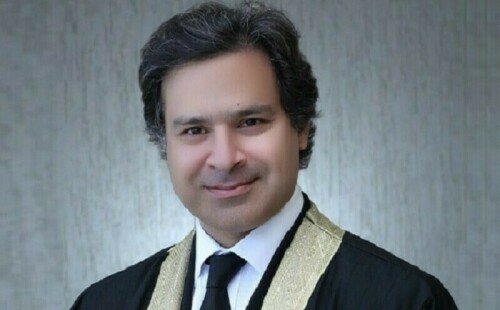NEW DELHI, Dec 18: Newly-declassified papers of the US government reveal that the then President Richard Nixon had ordered his aides not to hamper Gen Yahya Khan’s war effort in East Pakistan, despite warnings from his Dhaka envoy that American weapons were being used to carry out a massacre there, Star News reported on Wednesday.
In what was billed as an exclusive report, the New Delhi- datelined report quotes American documents as saying that the then Secretary of State Henry Kissinger and Nixon were poised to cut off diplomatic ties with New Delhi in the middle of the 1971 conflict but they were stopped by Pakistan’s surrender and the ceasefire declared by India.
Two days ago, India celebrated Vijay Diwas or Victory Day — the day in 1971 that Pakistan forces agreed to surrender in Dhaka. “Now 31 years later, the US has declassified 46 documents on its role during the crisis,” Star News added.
It quoted the documents as saying showing “how America blatantly violated its own arms embargo in arming Pakistan, despite ground reports of a systematic genocide by Pakistani forces in East Pakistan,” the report said. “To all hands, don’t squeeze Yahya at this time,” said a handwritten note by President Richard Nixon in April 1971 — perhaps the clearest indicator of US interests in backing Pakistan’s military dictator.
Only a month earlier in March 1971, the American consul-general in Dhaka wrote to his Secretary of State Henry Kissinger saying: “Am deeply shocked at massacre by Pakistani military in East Pakistan, appalled at possibility these atrocities are being committed with American equipment, and greatly concerned at United States vulnerability to damaging allegations of association with reign of military terror.”
With the American administration choosing to ignore such warnings it was up to the Indian government to internationalise the killings in East Pakistan, the report added. “The genocide in East Pakistan caught the world media’s attention because world media happened to be in West Bengal for the elections and we who were in eastern command would send them to places where they could shoot for themselves,” said Star News quoting India’s Gen Sethna, former Vice Chief of Army Staff, as saying.
Despite the media pressure Richard Nixon continued to support Yahya Khan sometimes for reasons, which seem implausible. “In all honesty, Dr Kissinger pointed out, the President has a special feeling for President Yahya. One cannot make policy on that basis, but it is a fact of life,” says an extract from the Memorandum of Conversation: Henry Kissinger, Assistant to the President to Kenneth Keating and US ambassador to India. It was perhaps this “fact of life” which saw the US completely disregarding its own arms embargo by transferring F-5 fighters then considered state of the art to Pakistan, less than 10 days after the ceasefire.
According to the American embassy in Tehran: “Three F-5A fighter aircraft with Pakistani markings and piloted by Pak pilots transited Tehran en-route from Turkey to Pakistan on December 26. Aircraft were noted by several employees including a Pakistani who spoke with one Pak pilot and the reported pilot indicated, that the aircraft had come from US.”
As Indian armed forces gained upper hand in the war, the mood in the White House grew increasingly desperate. The documents show both Richard Nixon and Henry Kissinger had decided on breaking diplomatic ties with the India but the Pakistani surrender and the Indian ceasefire brought a quick end to the Indo-US diplomatic standoff, the agency said.














































Dear visitor, the comments section is undergoing an overhaul and will return soon.